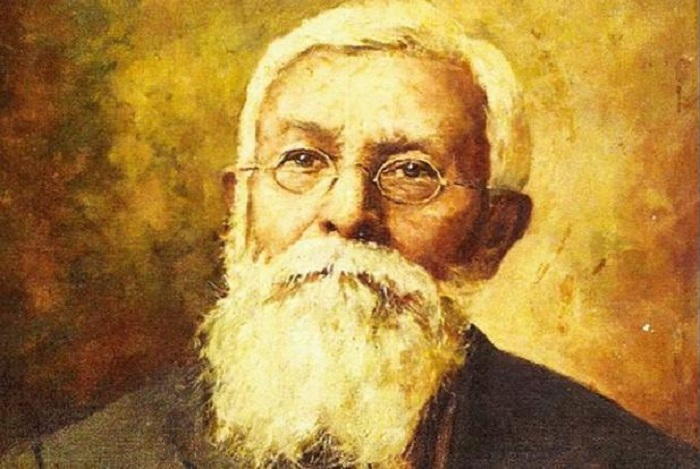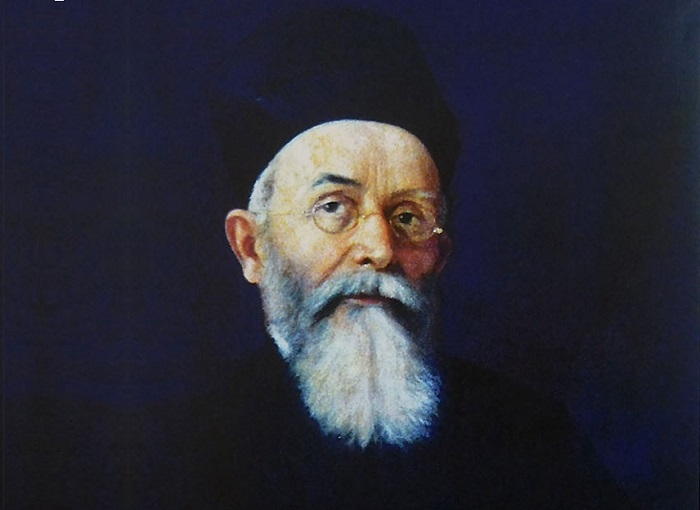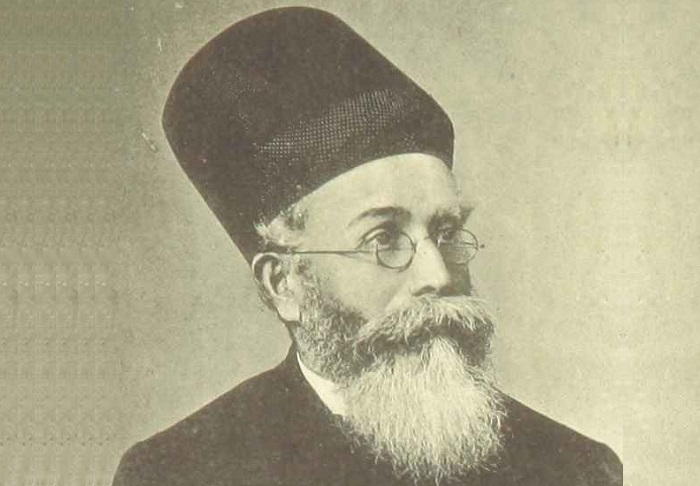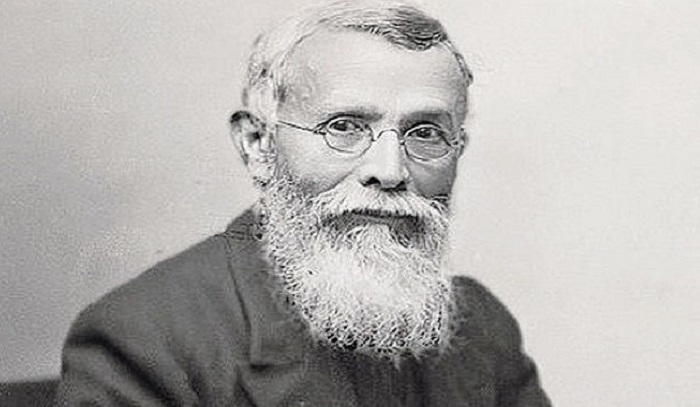Fast Facts
Date of Birth: September 4, 1825
Place of Birth: Bombay, British India
Death: June 30, 1917
Place of Death: Bombay, British India
Associated Organisations: Rahnumae Mazdayasne Sabha, Rast Goftar, Elphinstone College (Bombay), University College London, Cama & Co, Dadabhai Naoroji & Co., London Indian Society, East India Association, Indian National Association, Indian National Congress
Movement: Indian Independence Movement
Dadabhai Naoroji was a legendary Indian political and social leader, academician, and intellectual. Famously called the ‘Grand Old Man of India,’ Naoroji hailed from a leading Parsi family in Bombay. He played an instrumental role in the formation of the Indian National Congress. He was a member of the Second International. Naoroji also served as a Member of Parliament (MP) in the United Kingdom House of Commons as a Liberal Party member. He was the first Indian to become a British MP. Naoroji was a prominent Indian nationalist and critic of the economic policy of the British Raj in India. Through his book ‘Poverty and Un-British Rule in India,’ he put forward the ‘theory of drain of wealth,’ which highlighted the exploitation of Indian resources for the benefit of Britain.

Image Credit : https://www.livemint.com/Leisure/shVMSA6UkcVLqx6KCUXHhI/Dadabhai-Naoroji-The-black-man-in-Westminster.html
Early Life
Dadabhai Naoroji was born on September 4, 1825, in Bombay, British India, in a Gujarati-speaking leading Parsi family. He attended the Elphinstone Institute School and was under the patronage of Sayajirao Gaekwad III, the Maharaja of Baroda State noted for his patronizing endeavours and reformative efforts. Naoroji married Gulbai at the age of 11. In pursuit of restoring the sanctity of the Zoroastrian religion, Naoroji established the Rahnumae Mazdayasne Sabha (Guides on the Mazdayasne Path) on August 1, 1851.
He joined hands with Parsi scholar and a reformer from Bombay Kharshedji Rustomji Cama to start the Anglo-Gujarati fortnightly publication, the Rast Goftar (or The Truth Teller). The paper promoted Parsi social reforms among Western Indian Parsis and voiced the grievances of the Parsis belonging to the poor and middle class.
He was inducted as a Professor of Mathematics and Natural Philosophy at the Elphinstone College in Bombay in 1855 and with this he became the first Indian to serve an academic position of such repute. He went to London in 1855 and opened the Cama & Co where he joined as a partner. It was the first Indian company set up in the United Kingdom (UK). He was with the company for around three years before leaving it on ethical grounds. He founded Dadabhai Naoroji & Co., a cotton trading company, in 1859. He also served the University College London for a while as a professor of Gujarati. On October 31, 1861, he founded the religious, cultural and social organization for Zoroastrians, ‘The Zoroastrian Trust Funds of Europe’ (ZTFE) along with Muncherjee Hormusji Cama.
Dadabhai’s Theory of Drain of Wealth
Naoroji concentrated his work on drainage of wealth of India to Britain during the British Raj in India and systematically introduced the ‘Drain of Wealth theory’ to elucidate his perspective. He resolved to form an approximate idea of the net national profit of India and the effect the country faced due to colonisation. He made effort to prove that money was being drained out of India by Britain. Six factors were elucidated by him that in his opinion were resulting in such external drainage.
The first of them was the fact that India was under the governance of a foreign government.
The second factor points out that, immigrants were not drawn by India that would have brought both labour and capital for the growth of the economy.
According to the next point, the expenses of civil administrations as well as occupational army of the British were borne by India.

Image Credit : http://khabarsamay.com/india/dadabhai-naoroji-the-man-who-brought-statistics-into-politics/
The fourth point stresses that the empire-building costs, both within and outside the borders of India were also borne by India.
The fifth point mentioned that India was actually being exploited in the name of free trade as highly paid jobs were offered to foreign nationals.
The sixth factor very importantly mentioned that as the main income-earners were mostly foreign personnel, they would either leave India with the money or buy outside the nation, thus draining money out of the country in both cases.
He later published a book in 1901, titled ‘Poverty and Un-British Rule in India’ where he estimated the loss of India’s revenue to Britain amounting to 200–300 million pounds, which were never returned. He mentioned that the services brought to India by the British like the railways definitely called for some tribute in the form of payments, but India was giving too much to Britain as the money was getting drained out to Britain. The services and the tribute thereof were not leading India to earn any profit directly.
Over the years he came up with several other literary works expressing his views and opinions on the situation of India and its people during the colonial rule. These included ‘The European and Asiatic races’ (1866), ‘Admission of educated natives into the Indian Civil Service’ (1868), ‘The wants and means of India’ (1876) and ‘Condition of India’ (1882).
After being elected to the British Parliament, Naoroji questioned role of the British in India in his very first speech. He brought out the economic adversities faced by India before the English audience and this he made possible by presenting himself as an Imperial citizen. He said that Indians were either subjects or slaves of the British, which depended on the extent of Britain’s wish to give the institutions already operated by them to India. He mentioned that the revenue of India would remain in the country in case Britain gives these institutions to India thus permitting it to govern itself. He said tributes would be readily paid sans any apprehension of poverty in circumstances when money earned in India remained in India instead of being drained out. To achieve such pursuit he advocated for several steps including giving equal employment opportunities to Indian professionals who were too highly qualified for the jobs they were actually doing; and development of industries in India among others. The principal reason that led to the formation of the Royal Commission on Indian Expenditure in 1896 was the work on the Drain of Wealth theory by Naoroji, who also remained a member of the Commission.

Image Credit : Image Credit : http://khabarsamay.com/india/dadabhai-naoroji-the-man-who-brought-statistics-into-politics/
Political Career & Role in India’s Independence Movement
He was instrumental in the formation of the ‘London Indian Society’ in 1865. The objective of the society was to discuss Indian social, political and scholarly subjects. He also helped in setting up the ‘East India Association’ in 1867 that aimed at conveying the Indian perspective to the Britain public. It was influential in countering the propaganda made by the Ethnological Society of London when he learned that the society attempted in establishing inferiority of Asians with respect to Europeans in its session held in 1866. In no time, the East India Association garnered support from prominent Englishmen and was successful in applying much influence in the British Parliament. The association is counted among the precursors of the Indian National Congress that played an instrumental role in the Indian independence movement.
In 1874, Naoroji became the Dewan (Minister) to the Maharaja of Baroda State thus commencing his public life. After becoming the Prime Minister of Baroda in 1874, he also remained a member of the Legislative Council of Mumbai between 1885 and 1888.
Naoroji was also member of the Indian National Association, founded in 1876 by Surendranath Banerjee and Ananda Mohan Bose. The Indian National Congress, founded later on December 28, 1885, merged with Indian National Association and Naoroji was elected as the Congress President in 1886.
In the 1892 UK general elections, Naoroji was elected as a Member of Parliament (MP) in the United Kingdom House of Commons as a Liberal Party member from the Finsbury Central constituency, by a narrow margin of 5 votes. With this he became the first Indian MP in the British House of Commons. A dedicated member of the Zoroastrian community, Naoroji was permitted to take oath of office on the copy of his Khordeh Avesta after he refused taking the oath on the Bible. He remained a British MP till 1895 and during such tenure, Naoroji, a competent communicator, strived hard to bring to the notice of the British government, crown and the public the prevailing condition in India. He weighed the governance of India and its situation vis-à-vis that of the prevailing colonial rule in the British Parliament.
Also a prominent Freemason, Naoroji also spoke on the Irish Home Rule in the Parliament. In his endeavours as a politician and a British MP, Naoroji received aid and support from lawyer and politician Muhammed Ali Jinnah, who later became the founder of Pakistan.
Naoroji was once again elected as the President of the Indian National Congress in 1906 and while the party was split between moderates and extremists for some time, Naoroji remained a staunch moderate. He mentored prominent leaders of the Indian independence movement against the British rule. These included Mohandas Karamchand Gandhi, Gopal Krishna Gokhale, and Bal Gangadhar Tilak, one of the first and staunch advocates of Swaraj (self-rule) who was honoured with the title of “Lokmanya” meaning “accepted by the people (as their leader)”.

Image Credit : https://www.thefamouspeople.com/profiles/dadabhai-naoroji-5283.php
Death & Legacy
Remembered as the ‘Grand Old Man of Indian Nationalism,’ Naoroji breathed his last on June 30, 1917. Other members of his family who took forward his legacy in the Indian independence movement included his granddaughters Perin and Khrushedben among whom the latter was arrested with other freedom fighters in 1930 in a Government College in Ahmedabad for trying to hoist the Indian flag.
Many places including the Dadabhai Naoroji Road, in Mumbai; the central government servants residential colony, Naoroji Nagar, in south of Delhi, in India; the Dadabhai Naoroji Road in Karachi, Pakistan; and the Naoroji Street in the Finsbury section of London are named in his honour. A plaque is placed outside the Finsbury Town Hall on Rosebery Avenue, London, in commemoration of Naoroji.
The Dadabhai Naoroji Award was inaugurated in 2014 by the then Deputy Prime Minister of UK, Nick Clegg.
A stamp dedicated to Naoroji was also issued by India Post in Ahmedabad on December 29, 2017, marking the centenary year of his death.


